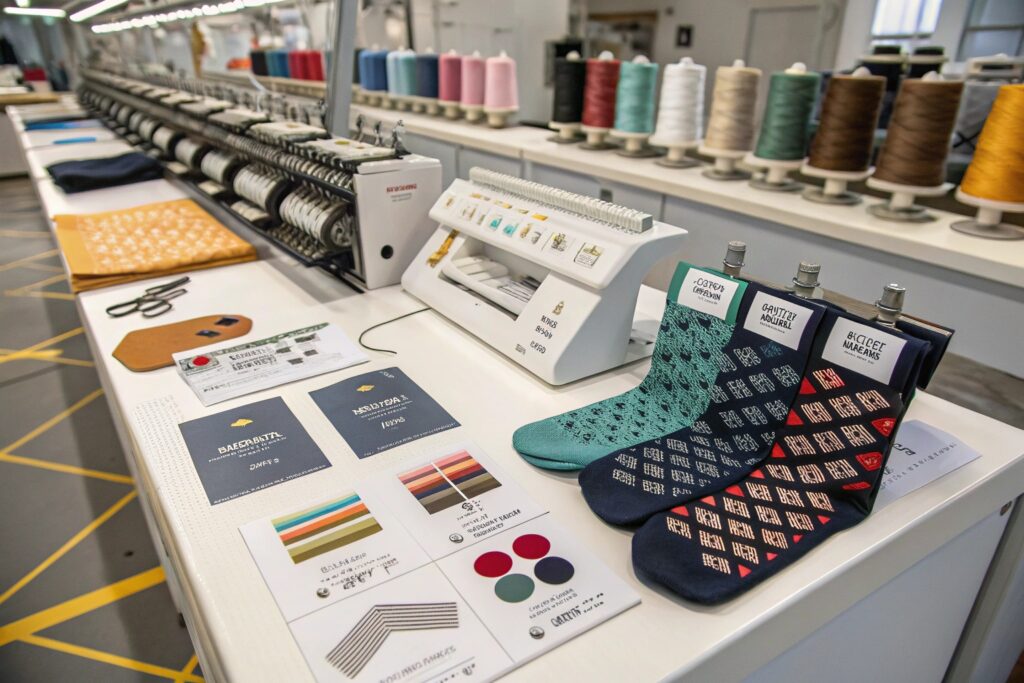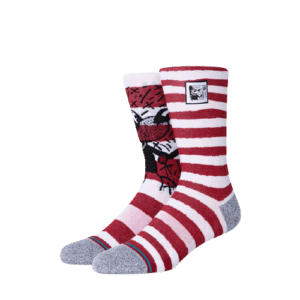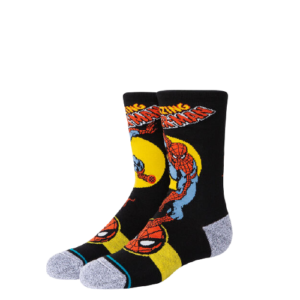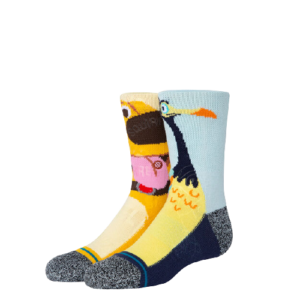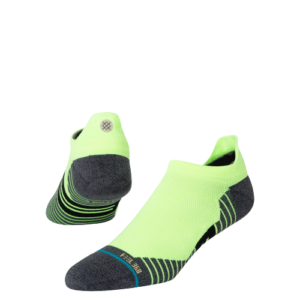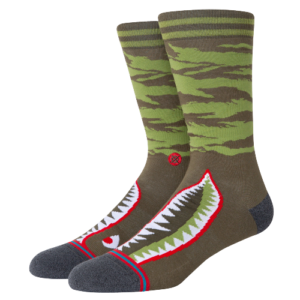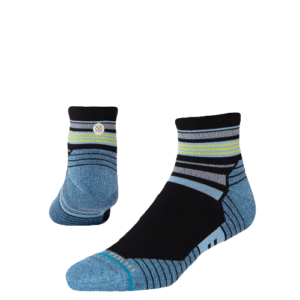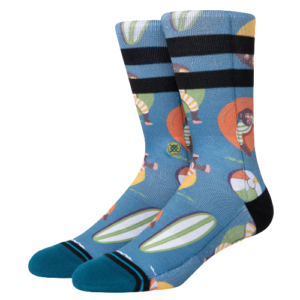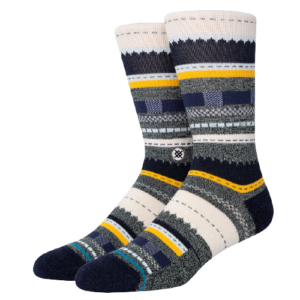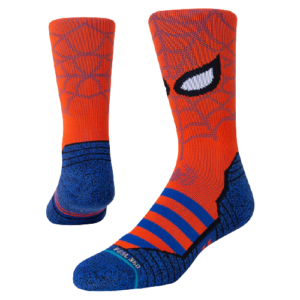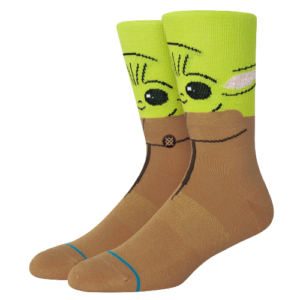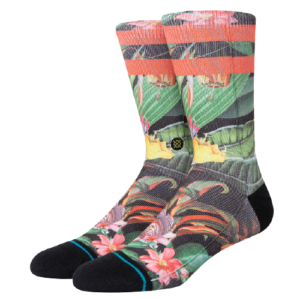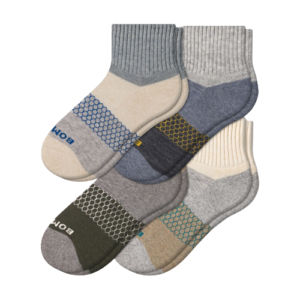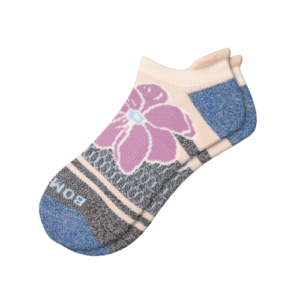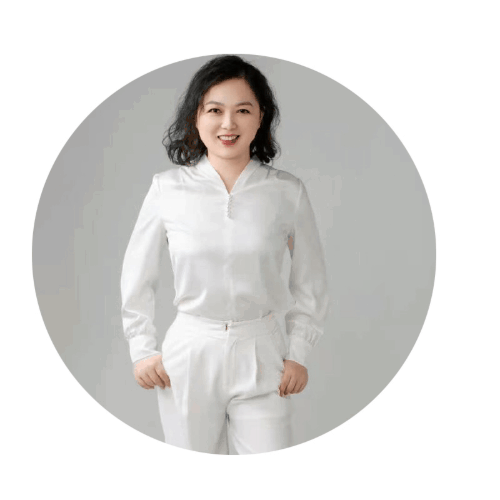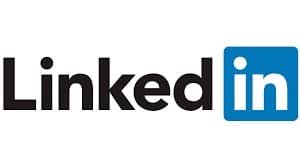Whether you're launching a lifestyle brand or expanding your fashion label into accessories, customized socks are a stylish, profitable addition. But one question always comes up from new and seasoned buyers alike—what’s the minimum order quantity (MOQ), and how flexible is it?
Customizing socks for fashion brands means understanding MOQ thresholds, choosing the right materials and techniques, and partnering with a factory that balances small batch flexibility with premium design capability.
In this article, I’ll explain how MOQ works in sock manufacturing, how we at GlobalSock manage low MOQs for emerging brands, and what customization choices impact order size.
What Is MOQ and Why Does It Matter for Custom Socks?
MOQ, or minimum order quantity, is the lowest number of units a factory agrees to produce per SKU or design. It reflects cost efficiency in materials, labor, and machine setup.
In sock customization, MOQs are influenced by knitting complexity, color count, yarn type, packaging, and design technique.
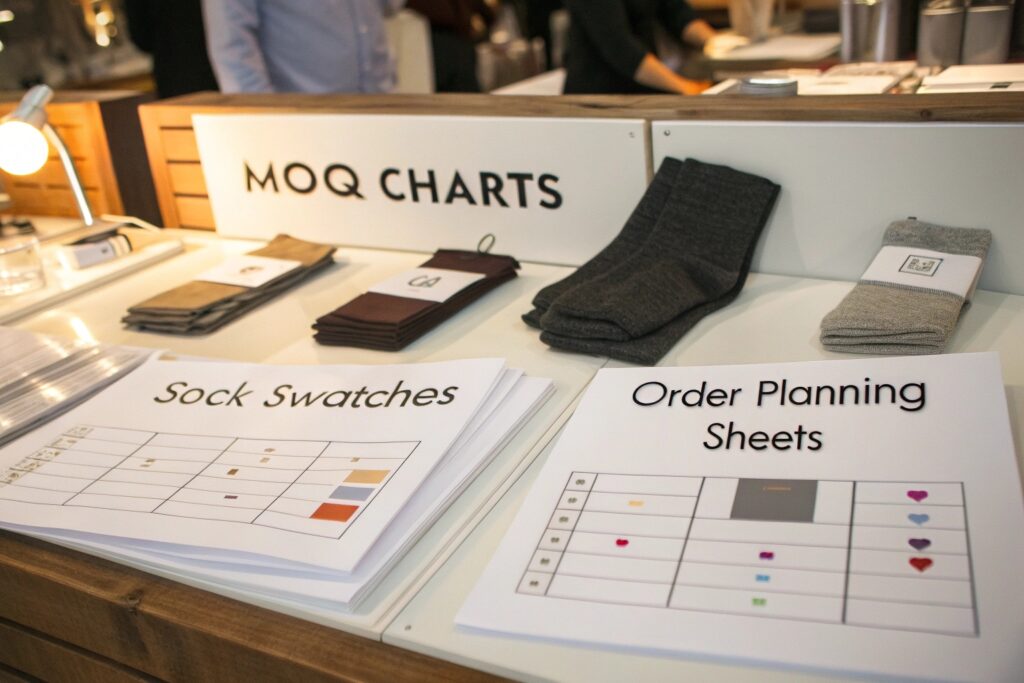
Why Do Sock Factories Require a MOQ?
Each new sock design requires:
- Machine setup (needle selection, stitch patterns)
- Yarn reservation or dyeing
- Packaging and branding configuration
These fixed costs only make sense to recover when orders reach a certain volume. That’s why factories set MOQs—for example, 500 pairs per color per size—to stay profitable. Learn how factories calculate this via Sourcing Journal or Manufacture This.
What MOQ Should Small Fashion Brands Expect?
At GlobalSock, we offer low MOQs starting at:
- 300–500 pairs for basic jacquard or cotton socks
- 1000+ pairs for complex compression or custom-dyed yarn socks
- 100 pairs per color if within a mixed bulk run
Compare with platforms like Printful or Alanic for print-on-demand versus OEM factories. Our advantage? Full customization and export-grade quality for small runs.
How Do Yarn Type and Design Complexity Affect MOQ?
MOQ is not one-size-fits-all. It varies widely depending on how your socks are made—digitally printed vs. jacquard knit, cotton vs. merino, solid vs. multi-color.
Design choices like yarn type, color count, and sock length all impact the MOQ because they change how much setup and raw material commitment is needed.
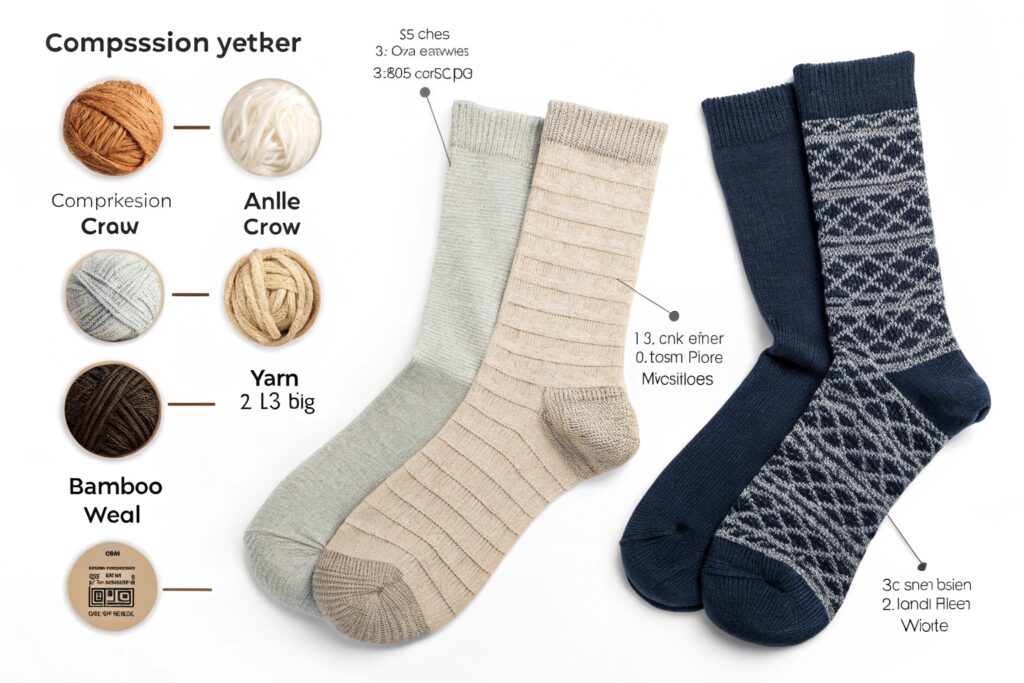
How Do Yarn and Fiber Types Influence MOQ?
Different yarns have different sourcing challenges:
- Combed cotton is widely stocked—low MOQ
- Organic cotton or bamboo may need pre-booking—higher MOQ
- Merino wool and recycled fibers require special batching and dyeing—MOQ often 1000+
GlobalSock keeps over 200 shades of cotton yarn in stock, which enables lower MOQs on short-run fashion projects. Brands like Tentree and Pact also face MOQ decisions due to sustainable yarn choices.
Does Color Count or Artwork Detail Raise MOQ?
Yes. More intricate artwork or color changes require:
- More needle programming
- Slower knitting speeds
- More frequent yarn switches
For example:
- 1-color logo crew sock: MOQ 300–500
- 6-color jacquard fashion sock: MOQ 1000–2000
- Digital sublimation sock: MOQ can drop to 100 with polyester base
Use Pantone references to simplify approvals and avoid dye matching delays. We also support multi-style grouping to reach higher total order volumes across SKUs.
What Customization Techniques Are MOQ-Friendly?
Not every technique requires high MOQ. Some are friendlier for small brands launching limited capsule collections or testing markets.
Jacquard, embroidery, and heat-transfer prints are popular customization methods—each with different MOQ implications and aesthetic results.
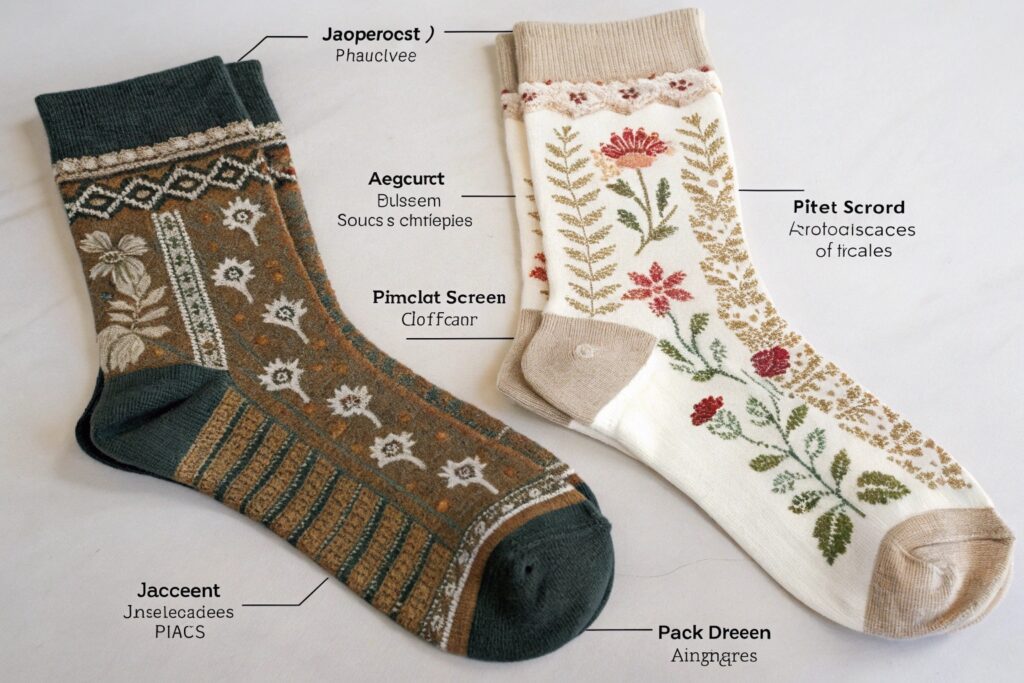
What’s the Best Technique for Low MOQ Socks?
Here’s a quick comparison:
| Technique | Look & Feel | MOQ Estimate | Notes |
|---|---|---|---|
| Jacquard Knit | Durable, textured | 500+ | Best for logos & patterns |
| Heat Transfer | Sharp print on polyester | 100+ | Great for photo-quality designs |
| Embroidery | Premium, tactile | 300–500 | Adds elegance, requires positioning care |
| Patch Appliqué | Streetwear vibe | 500+ | Custom shapes, longer production cycle |
We help buyers match technique to budget and MOQ goals. Sites like SocksRock or CustomSockLab offer side-by-side technique previews too.
Can You Mix Sizes or Designs Within One MOQ?
Yes—up to a point. Many clients ask if they can split 500 pairs into multiple designs or sizes. Our general rule:
- Same artwork, different sizes: 100 pairs minimum per size
- Same yarn/colors, different artwork: 250 pairs minimum per design
We allow design rotations within one knitting job to help small brands hit style diversity without overspending. Platforms like Tundra or Faire may also help manage small-batch inventories post-production.
How to Plan Production and Packaging for MOQ Success?
Even after design approval, your MOQ planning isn’t done. Packaging, labeling, and production sequence decisions can make or break your unit economics.
Small brands can reduce costs and streamline logistics by standardizing packaging, reusing carton dimensions, and working closely with their sock manufacturer.
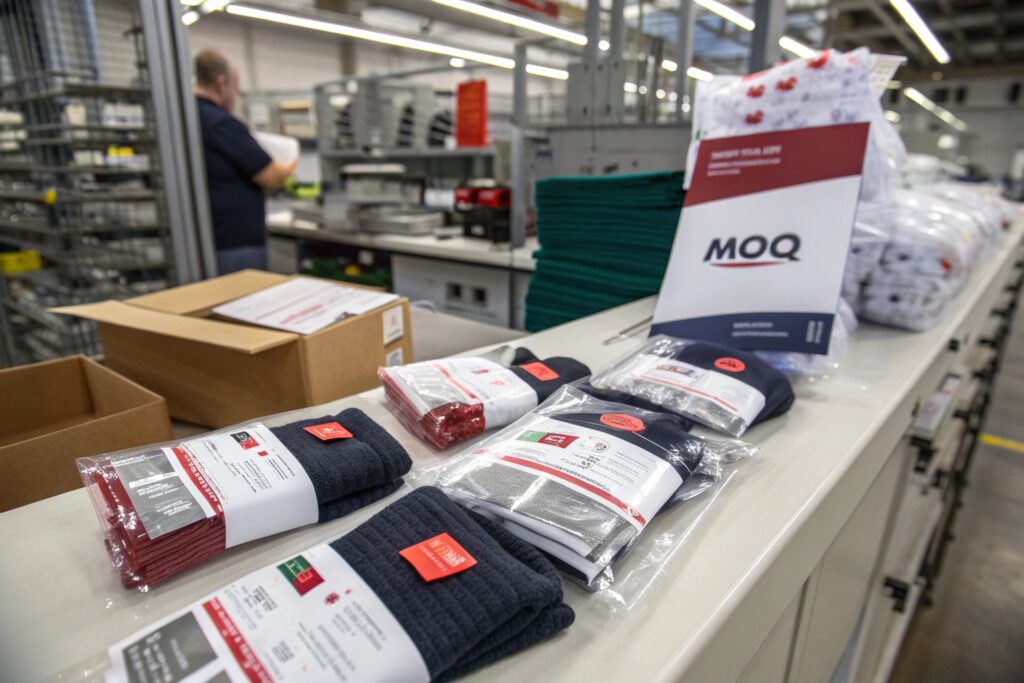
How Can You Package Small Runs Without Overspending?
Use shared packaging techniques:
- Universal inserts with blank space for product stickers
- Mono-carton sizes that work across SKUs
- Custom hangtags printed in bulk for use across seasons
At GlobalSock, we offer MOQ 1000 for hangtags, 500 for polybags, and custom belly bands with recyclable kraft material. Sites like Sticker Mule or Noissue are great for small custom packaging tools.
How Long Does Production Take After MOQ Is Met?
Typical timeline:
- Yarn booking: 3–5 days (stock yarn: 1–2 days)
- Knitting and linking: 5–10 days
- Washing and shaping: 3 days
- QC + packing: 2–3 days
- Total: 15–25 days
Express orders or capsule collection re-runs can be finished in under 14 days if yarn is in stock and designs are pre-approved. Learn more via Sourcify or Maker’s Row on planning short-run production.
Conclusion
MOQ doesn't have to be a barrier. With the right customization method, yarn planning, and packaging strategy, even small fashion brands can launch premium socks without overcommitting. At GlobalSock, we work closely with emerging designers, boutique retailers, and seasonal brands to offer flexibility, transparency, and fast turnaround—even at 300 pairs. Whether you're building a full collection or testing a trend, smart MOQ planning ensures both creativity and profitability.

